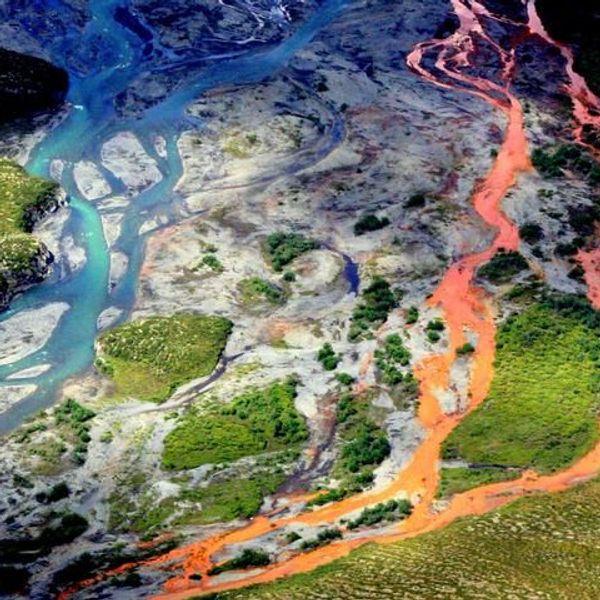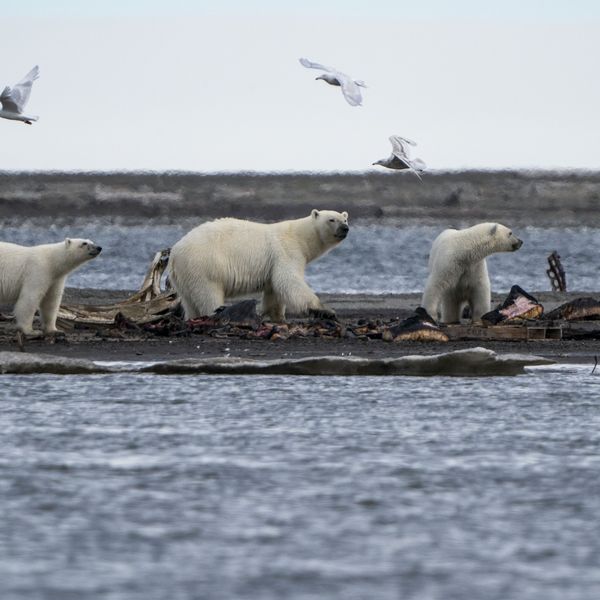A row over alleged irregularities in polar bear science studies has intensified after the US government department tasked with investigating the claim was exposed as having failed to collect tens of billlions of dollars in oil industry royalties.
Investigators from the department of the interior had called in government wildlife biologist Charles Monnett for questioning over his design of an ongoing polar bear study.
Monnett was suspended on 18 July for unspecified "integrity issues" related to the study, and his oversight of about $50m in research contracts.
But while the interior department has been focused on polar bears, the Government Accountability Office (GAO) has faulted the department for failing to live up to its responsibilities and collect billions of dollars in royalties from oil and gas companies operating in the Gulf of Mexico and in the Arctic.
The office designated the department of interior as at "high risk" of fraud, waste, abuse and mismanagement in a report (PDF) to Congress in February 2011.
"Interior does not have reasonable assurance that it is collecting its share of billions of dollars of revenue from oil and gas produced on federal lands and it continues to experience problems in hiring, training, and retaining sufficient staff to provide oversight and management of oil and gas operations on federal lands and waters," the GAO wrote.
The report went on to say that the interior department had consistently failed to monitor production of oil and gas production, which made it impossible for the government to collect a full share of the royalties it was owed.
It is unclear how many billions the government failed to collect, it added. However, it noted in a 2008 report from the Government Accountability Office which estimated the losses in the four years from 1996-2000 to be as high as $53bn.
The report also noted that the government had collected less than it was owed from 93 of 104 oil and gas operators.
Jeff Ruch, the president of the Public Employees for Environmental Responsibility (Peer), which is acting as Monnett's defence, has suggested that the government is trying to sideline Arctic research to help open up the region for offshore oil drilling.
"You have to wonder: this is the guy in charge of all the science in the Arctic and he is being suspended just as an arm of the interior department is getting ready to make its decision on offshore drilling in the Arctic seas," Ruch said.
By the time of the latest GAO report, however, investigators were looking at Monnett's scientific record. They interviewed a fellow government scientist, Jeff Gleason, last January about a 2006 paper, which indicated polar bears were at greater risk of drowning because of melting sea ice due to climate change.
On Monday, however, the investigation switched tack, and began to focus on the ongoing study of polar bear movements.
The interior department ordered scientists to stop work on the study on 13 July. The scientists were allowed to resume work on Monday. No explanation was given for either order.
The study, conducted by scientists from the University of Alberta, had a $1.2m budget, with additional funds provided from Canada, according to Public Employees for Environmental Responsibility (Peer) which is acting as Monnett's defence.
On Monday, investigators told Monnett he would face questioning about his role in designing the study.
"We intend to discuss actions taken in your official capacity as a biologist and any collateral duties involving contracts as an official of the US government," Eric May, an official in the department of interior's inspector general's office wrote in the letter.
"Those actions include the procurement of a sole source, cost-reimbursable contract with the University of Alberta to conduct a study titled Populations and Sources of the Recruitment in Polar Bears."
The letter asked Monnett to meet government investigators on 9 August. Peer said Monnett will be asked about his compliance with government contracting regulations as well as his relationship with the lead researcher, a reputed polar bear scientist, Andrew Derocher.
Ruch aid Monnett's management of the polar bear study had been approved by his supervisors at the Bureau of Ocean Energy Management Regulation and Enforcement, also known as the BOEMRE.
"Every aspect of this study was approved by his chain of command, with a fairly transparent paper trail," Ruch said in a statement.
Ruch noted that the justice department had turned down the investigators' request to file criminal charges against Monnett.
According to documents obtained by the Guardian, the study, conducted by scientists from the University of Alberta, was using satellite collars to track polar bears and their response to changing ice conditions. About 20 bears are still wearing the collars.
The letter to Monnett from the interior department's inspector general marked the first time the scientist has been informed of the scope of an inquiry which has already been under way for months.
Peer initially suggested the government was homing in on Monnett's 2006 paper, which first exposed the threat to polar bears from the melting sea ice due to climate change.
Two interviews conducted by the investigators, with Monnett and a colleague, Jeff Gleason, focused heavily on that 2006 research paper.
Monnett's observations, which were published in 2006, marked the first time scientists had drawn a connection between melting sea ice produced by climate change and the increased risk of drowning to polar bears.
Other studies have confirmed Monnett's findings. A study last month from the World Wildlife Fund found that polar bear cubs forced to make long-distance swims with their mothers had a much poorer rate of survival than bears that didn't have to swim as far.
But Michael Bromwich, the head of the bureau, insisted the paper had nothing to do with the investigation.
The controversy over Monnett has become an embarrassment for the agency, which was renamed after last year's BP oil spill disaster in the Gulf of Texas exposed the overly close relationship between government regulators and the industry that they were meant to be regulating.

